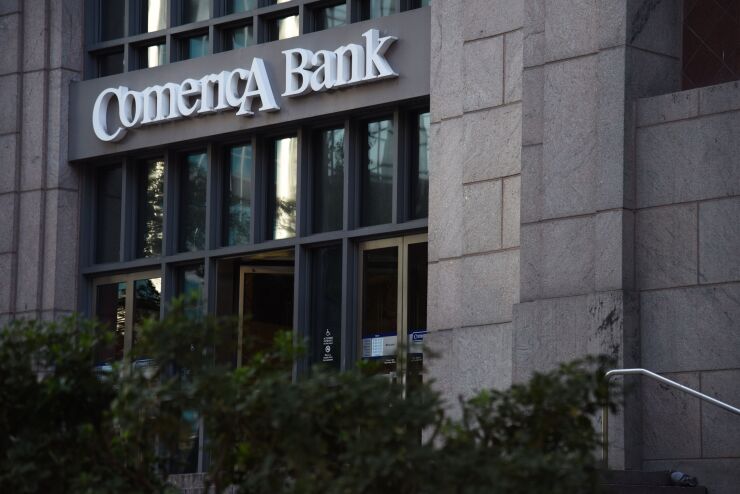Comerica will continue to handle the U.S. Treasury’s Direct Express prepaid card program, beating out other banks for the third time since the program launched in 2008, despite a high-profile glitch in 2018 that drew lawmakers’ scrutiny.
Texas-based Comerica will be the financial agent for the Mastercard program providing Social Security and Veterans Administration funds to about 4.5 million recipients that lack banks accounts through 2025, the Treasury’s Bureau of the Fiscal Service announced Tuesday.
The move followed a
In August 2019 an
The vulnerability of Direct Express customers escalated the attention on the program’s flaws.
Most Direct Express customers receive benefits from Social Security; 2% receive benefits from the Veterans Administration, according to the Fiscal Service. More than half are receiving disability benefits, and 57% subsist solely on payments through Direct Express. Sixty percent of recipients receiving Supplemental Security Income through Direct Express are on assistance for a diagnosed mental disorder, the government said.
Following the fraud attack, the Fiscal Service worked with Comerica to develop a comprehensive plan to respond to fraud and to simplify its program to minimize future exposure, said Ronda Kent, assistant commissioner for payment management and chief disbursing officer of the U.S. Treasury’s Bureau of the Fiscal Service.

A decision on the contract renewal, which was expected last summer, was delayed several months while the Fiscal Service reviewed bids from five banks, Kent said.
The Fiscal Service determined that Comerica Bank will continue to provide the best overall value for new and existing cardholders, with rigorous customer service requirements, additional reporting and lower cardholder fees for emergency-cash access, the Fiscal Service announced in a press release.
The challenge is balancing the need for making account access easy for a vulnerable population while keeping strong fraud controls, according to Kent.
“Certainly, just as part of any payments system, people are going to have their identities stolen, and that’s covered by Regulation E. But we’re very conscious that most people using Direct Express have no alternatives and we have to work very hard to protect their funds,” Kent said.
Direct Express funds are protected from government wage garnishment, and users have 90 days, instead of the usual 60 days, to dispute any transactions.
The 2018 fraud incident sprang from a program Direct Express developed a few years ago enabling customers to get their cards replaced immediately — instead of paying for overnight delivery — by going to a Western Union office. But a few fraudsters figured out how to game that system, stealing funds from a couple of hundred customers, creating a crisis for many users.
After the incident, the government shut down that program, which wasn’t restored in the new contract.
“We haven’t figured out a way to make it fraud-proof,” Kent said.
The new contract includes a revised agreement with Walmart, enabling Direct Express users to withdraw up to $2,000 in cash from funds in their account. The fee to get cash at Walmart is now 85 cents, down from $1.50, Kent said.
Funds are available in Direct Express accounts at 12:01 a.m. on the day they’re available, queued up in advance. But the Treasury also leverages same day ACH in case of emergency, according to Kent.
“In case of fraud, we can replenish funds on the same day, and we’ll use that ad hoc if needed,” Kent said.
The Treasury is constantly exploring new technology that could benefit Direct Express, but its focus is on providing basics, Kent said.
The mobile app, for example, currently provides data only about balance status and transactions.
“We’re reviewing voice-activation technology with Comerica to see if we can add capabilities for Alexa and Siri,” Kent said.
More than 70% of Direct Express users have no checking account, Kent said. About 5% report they’re homeless, compared to 1.7% in the general population. About half of Direct Express users receive retirement benefits and the other half receive means-tested Supplemental Security Income.
Though the program launched in 2008 at the beginning of the recession, the number of unbanked benefits recipients has remained steady.
“We couldn’t see a connection with the recession in the number of unbanked benefits recipients,” Kent said, noting that statistics show the number of unbanked U.S. citizens is about 6.5% and has held steady over the last year.





